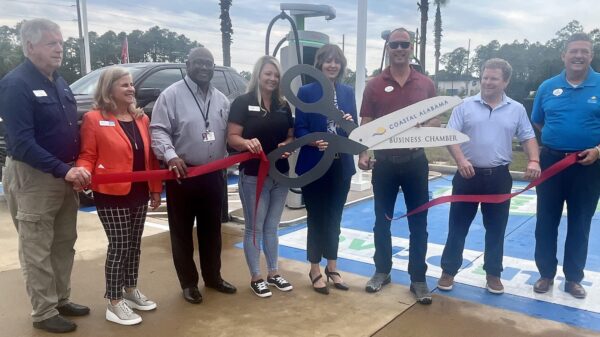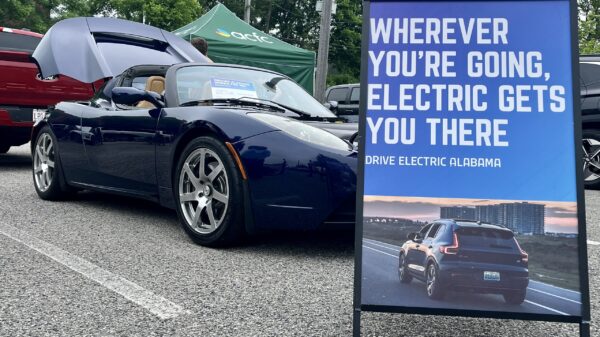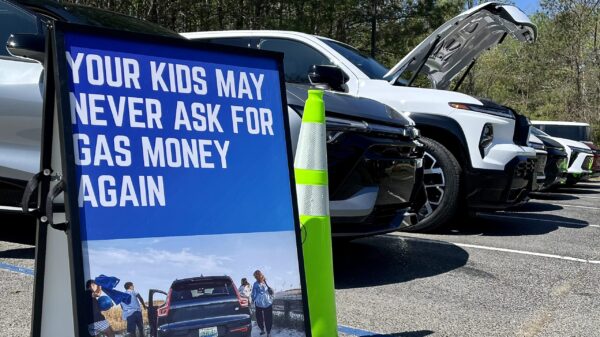On May 16, the Communications Workers of America announced that workers at the New Flyer electric bus plant in Anniston had successfully unionized and ratified their first union contract. Around 600 New Flyer workers joined the International Union of Electronic, Electrical, Salaried, Machine, and Furniture Workers, the industrial division of the CWA.
Approved by over 99 percent of union members, the new contract includes raises between 15 and 38 percent by 2026, cost-of-living adjustments, and improvements to retirement benefits.
The workers’ successful unionization and new contract comes after New Flyer signed a community benefits agreement with Jobs to Move America, a policy center focused on economic justice, as part of a lawsuit settlement in May 2022. The community benefits agreement required the company to invest more in Spanish language communications, create a discrimination complaint system, and ensure at least 45% of new hires were from historically disadvantaged groups.
In a statement, Janice Harper, the executive vice president of people and culture for New Flyer’s parent company NFI, said the company has “worked hard with local community organizations and union partners to focus our collective energies on providing opportunities for our people and the communities in which we operate, to thrive and succeed.”
Community benefits agreements are binding contracts between an employer and community groups that require the employer to give back to the community in specific ways. Adam Keller, a former Jobs to Move America organizing fellow and Alabama Arise’s organizer for northeast Alabama, said community benefit agreements provide an alternative to traditional economic development policy.
“Typically in the South, the model is we give away as much as we can to the company with little to no strings attached, and entice them with further promises of lower wages, hostility to unions, and just a generally more precarious workforce,” he stated.
Keller called community benefit agreements “a huge tool that we can use to ensure big economic development projects actually benefit the people.”
In addition to the community benefits agreement it signed, New Flyer also agreed to be neutral when its workers tried to unionize. Employers’ reactions to unionization campaigns are incredibly important for the campaigns’ eventual success or failure. Keller pointed to the anti-union conduct of Amazon, Starbucks, and most recently Mercedes as examples of the “egregious behavior” that companies can engage in to prevent their workers from unionizing.
Ryan Masters, a New Flyer worker, said that the neutrality agreement “let me talk with coworkers I normally wouldn’t and make an informed decision without the company watching over my shoulder.”
“We were able to get ideas and participation from way more people than we would have if New Flyer had been hostile towards workers,” Masters elaborated. “Because of that, we had more people participating in our union, which has made our union stronger and more viable.”
Beyond agreeing to be neutral during any unionization campaigns, New Flyer also adopted card check recognition and voluntarily recognized the union once a majority of workers at the Anniston plant signed authorization cards.
As APR has reported on before, a bill signed by Gov. Ivey on May 13 will bar companies that voluntarily recognize unions in the future from receiving economic benefits from the state or from local governments. The bill has been harshly criticized by representatives of Alabama labor unions.
Will Tucker, the director of Jobs to Move America’s Southern program, told APR that “the new law punishes businesses for doing the right thing, which is recognizing the huge benefits unions bring to Alabama’s communities and allowing workers to unionize without fear and without pressure.”




















































